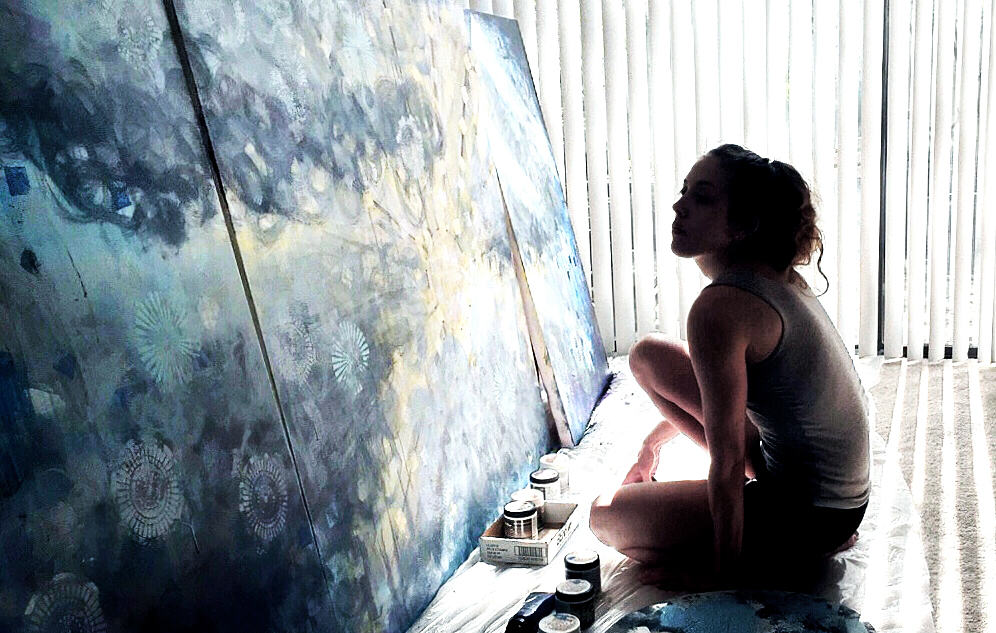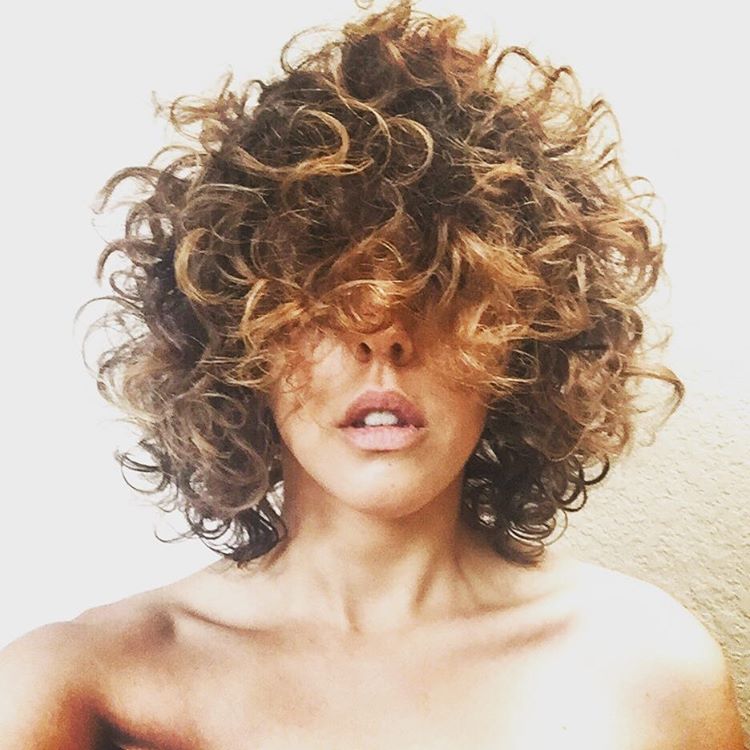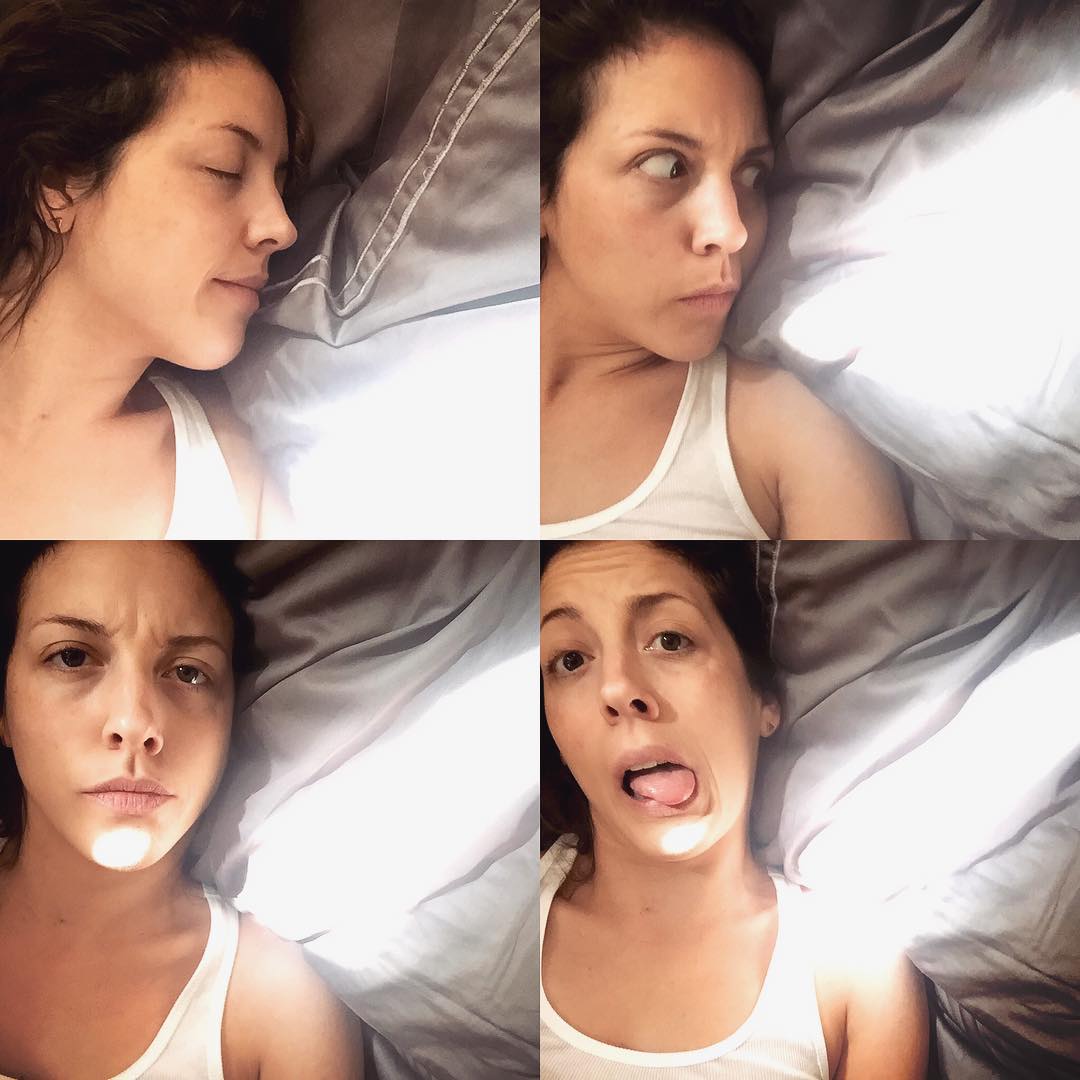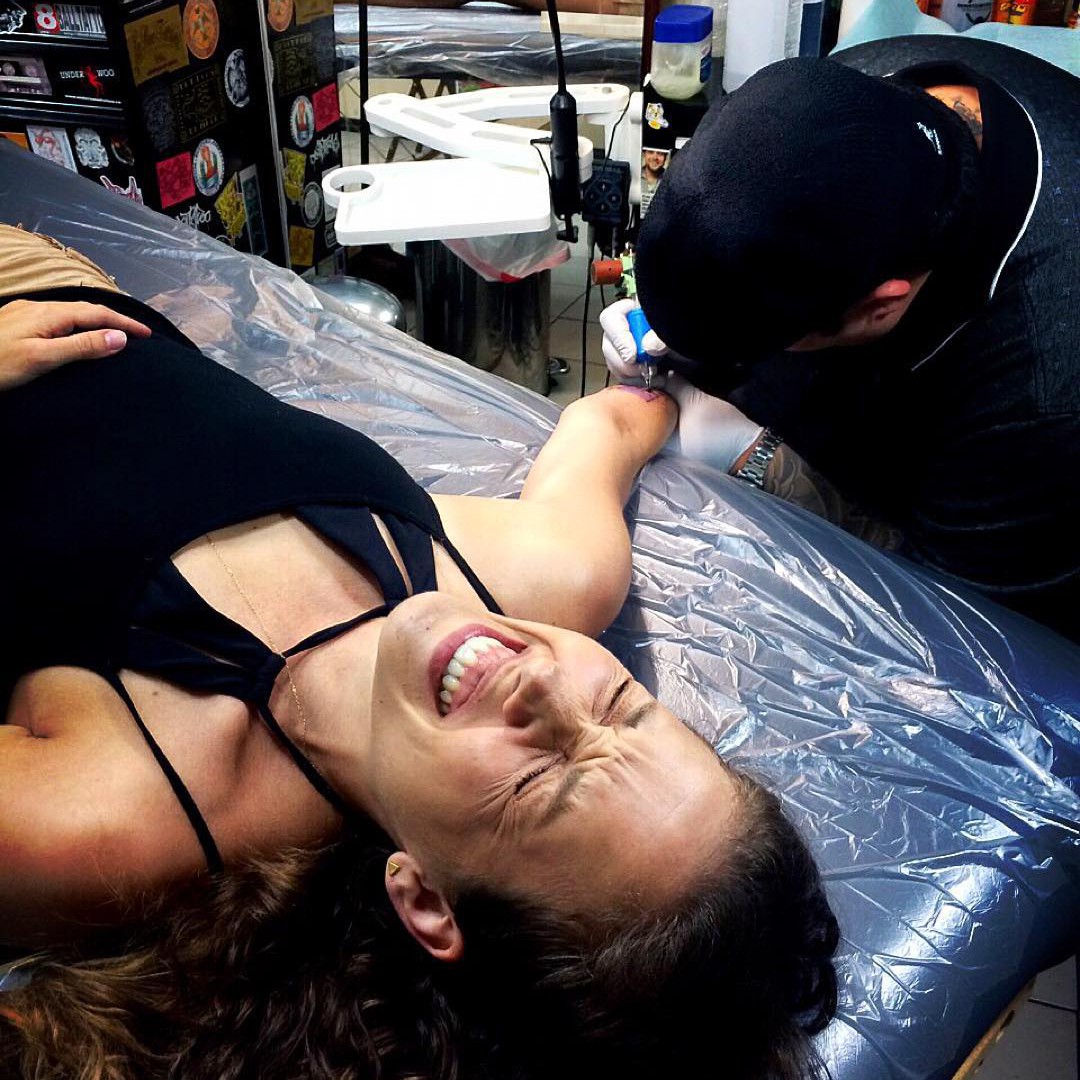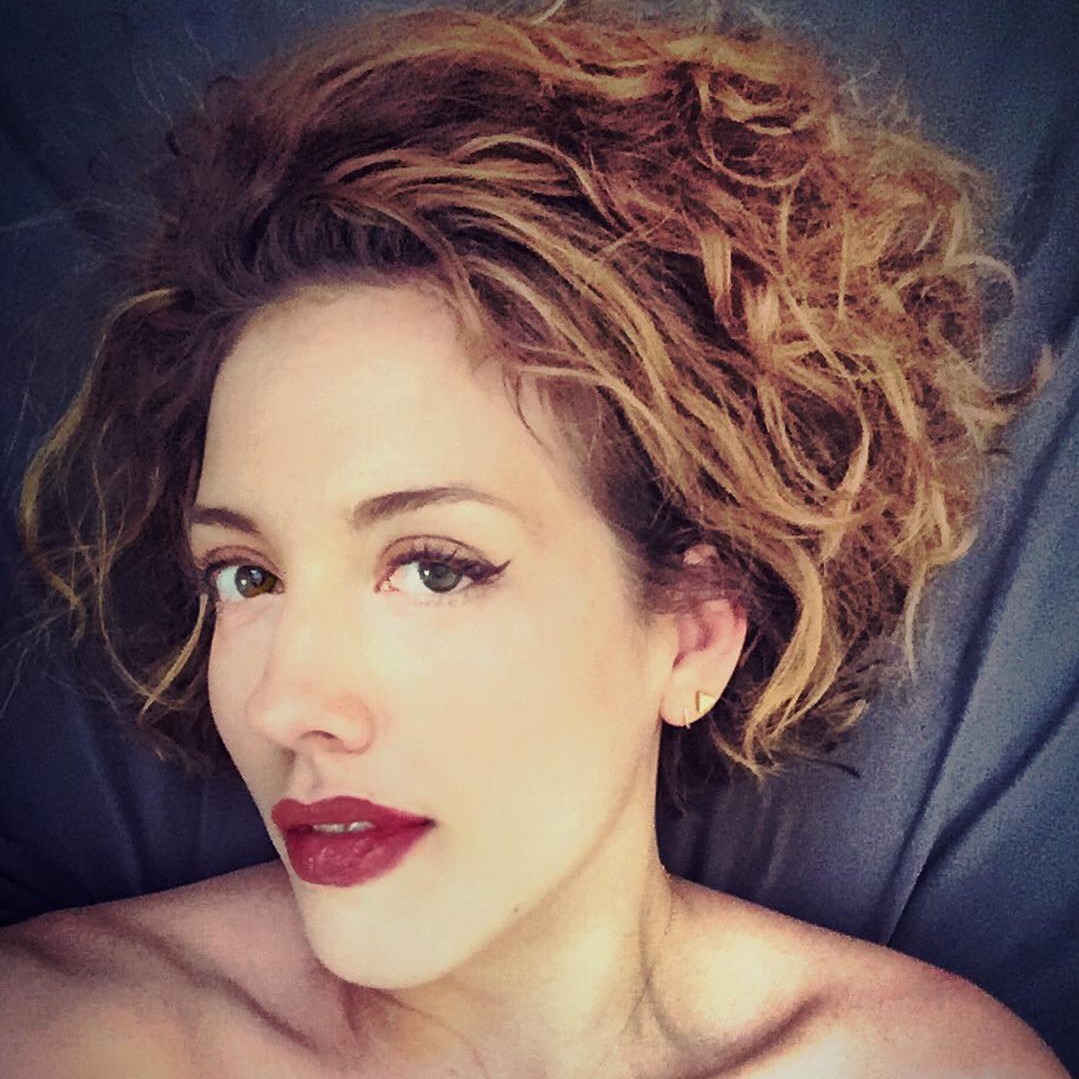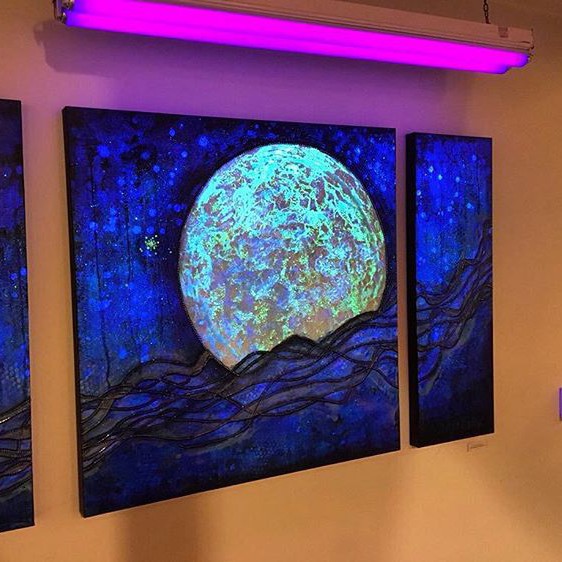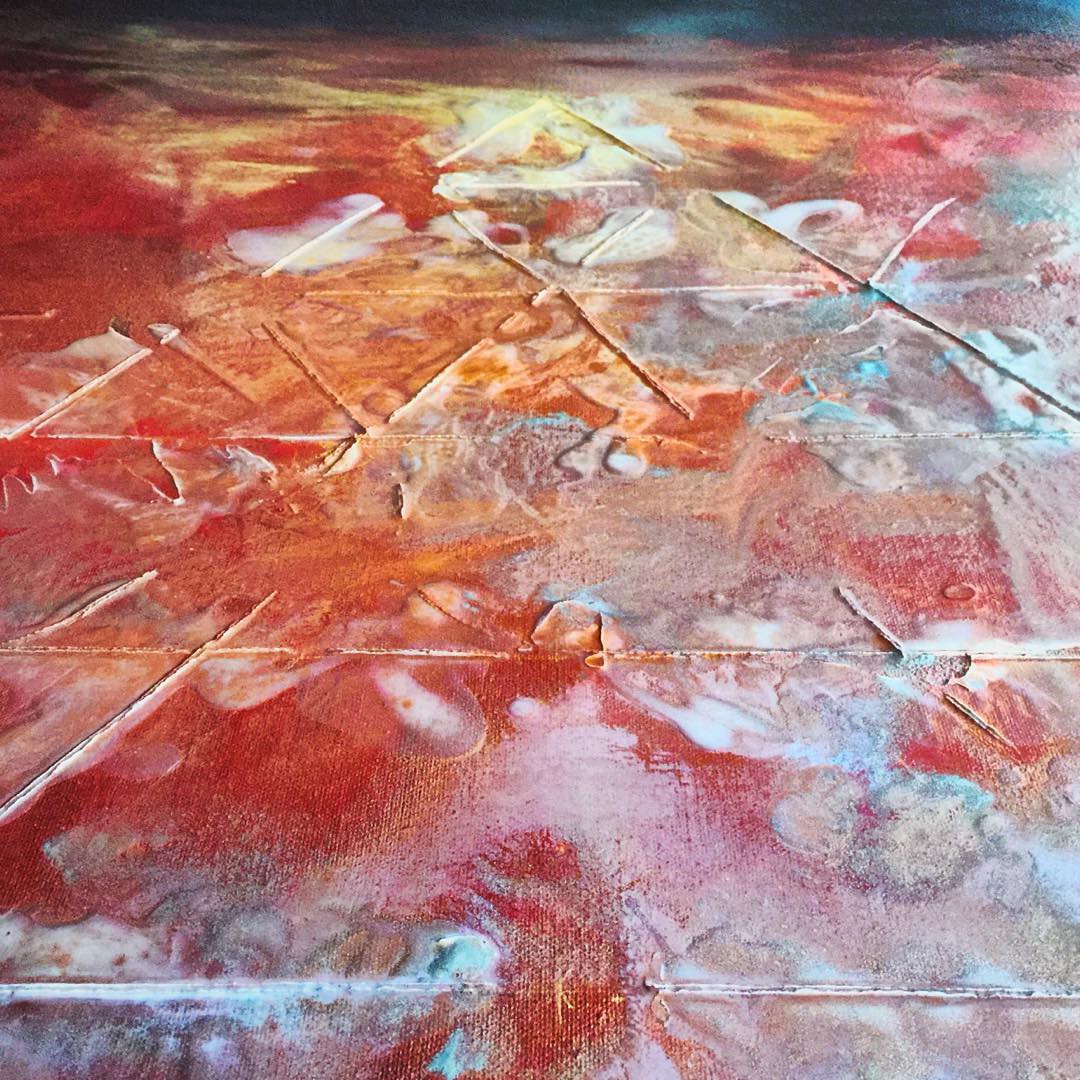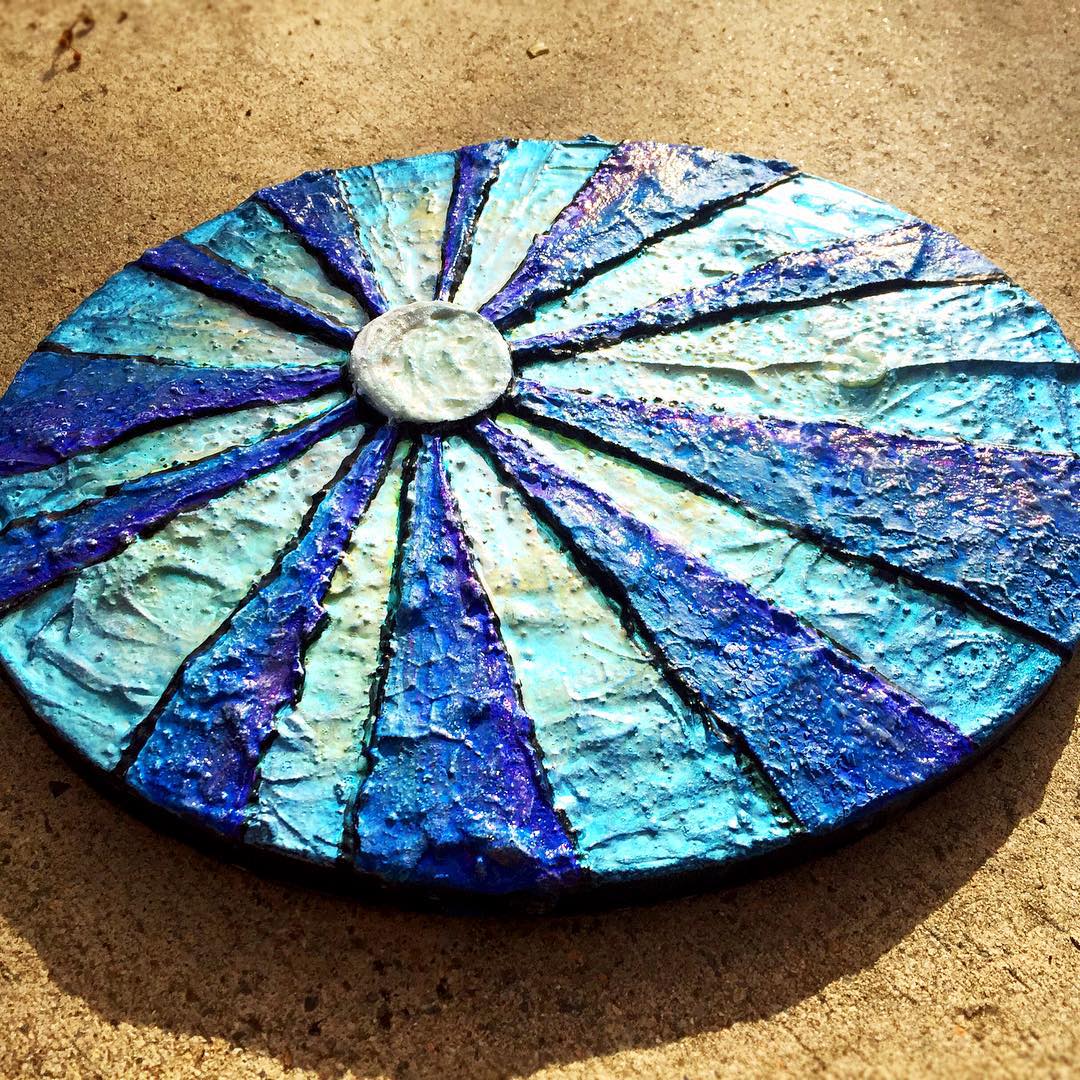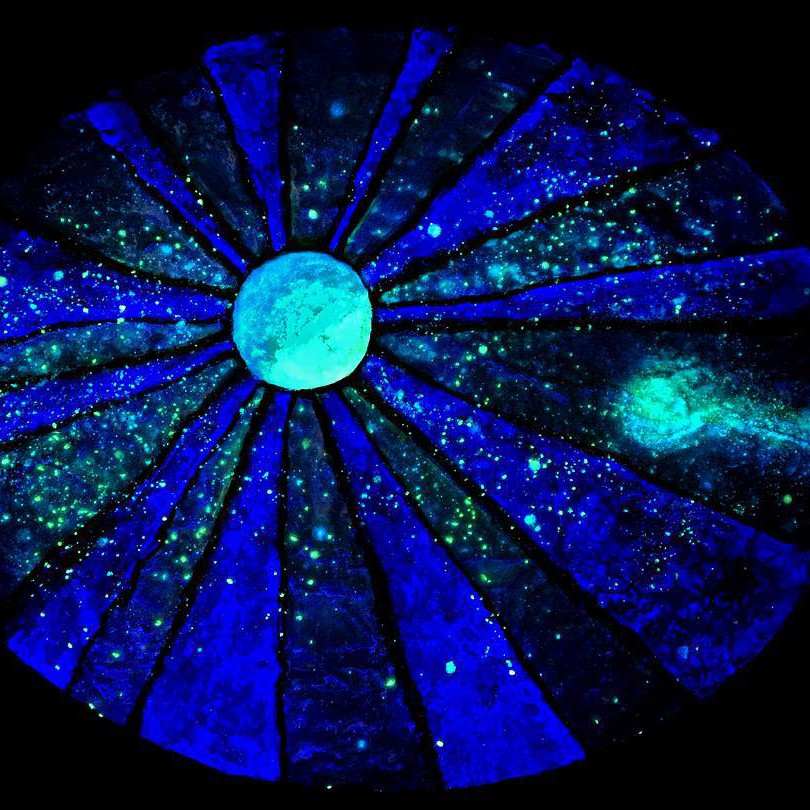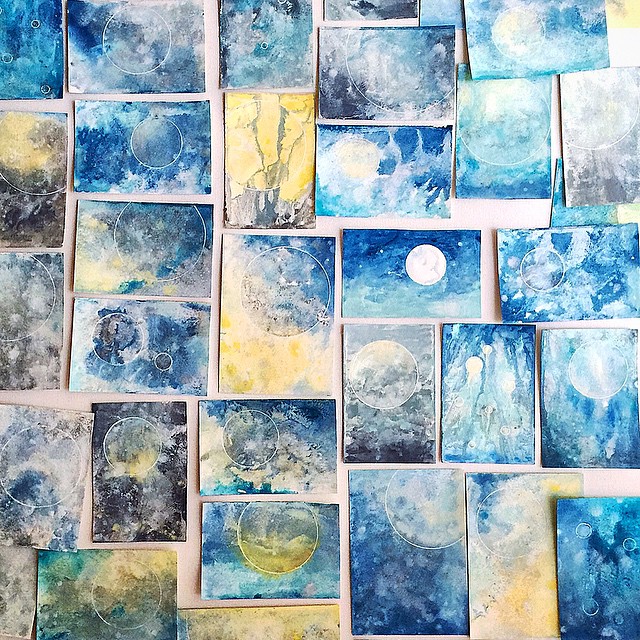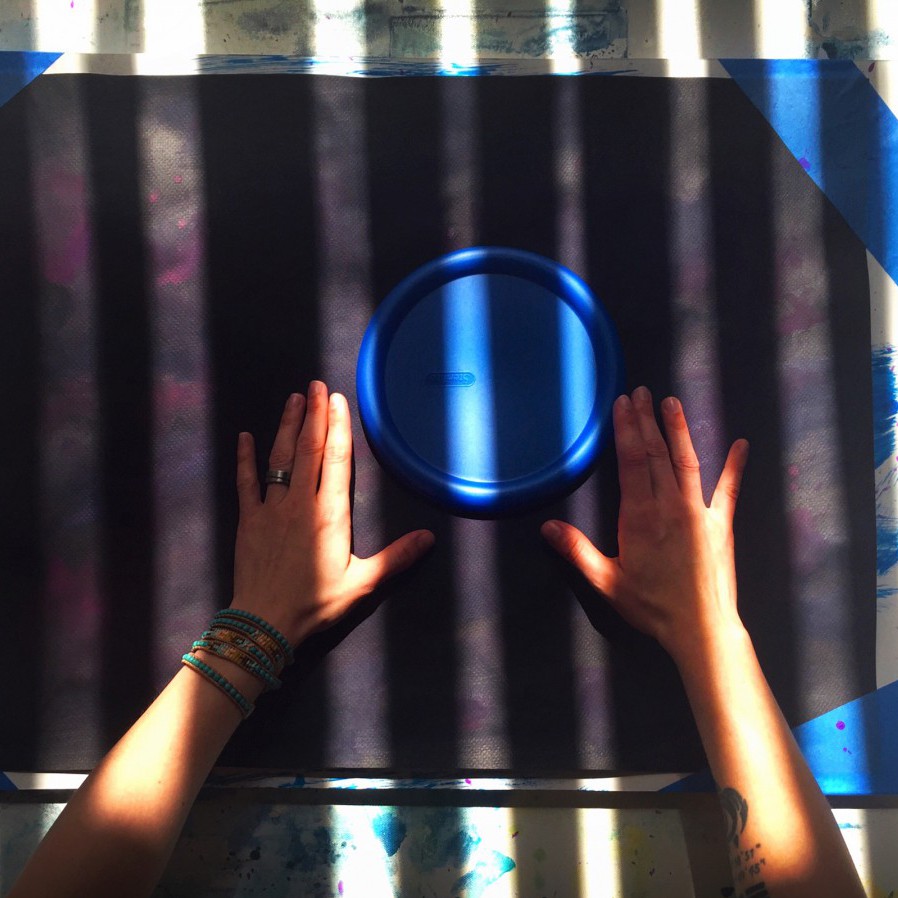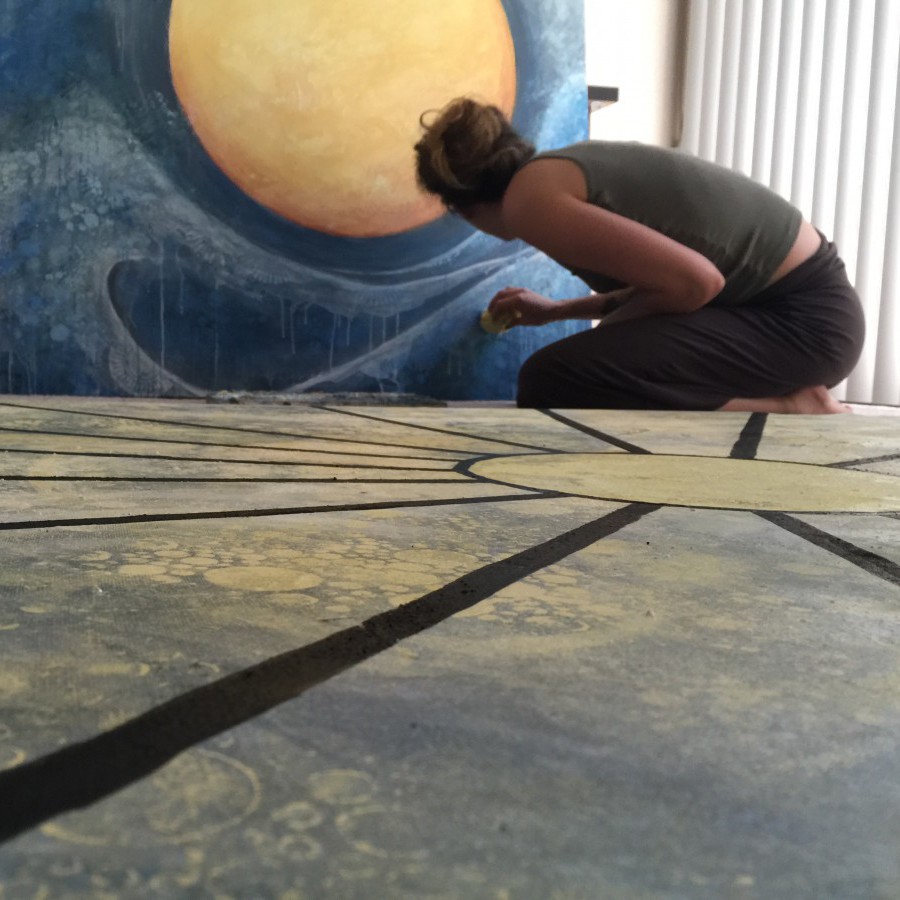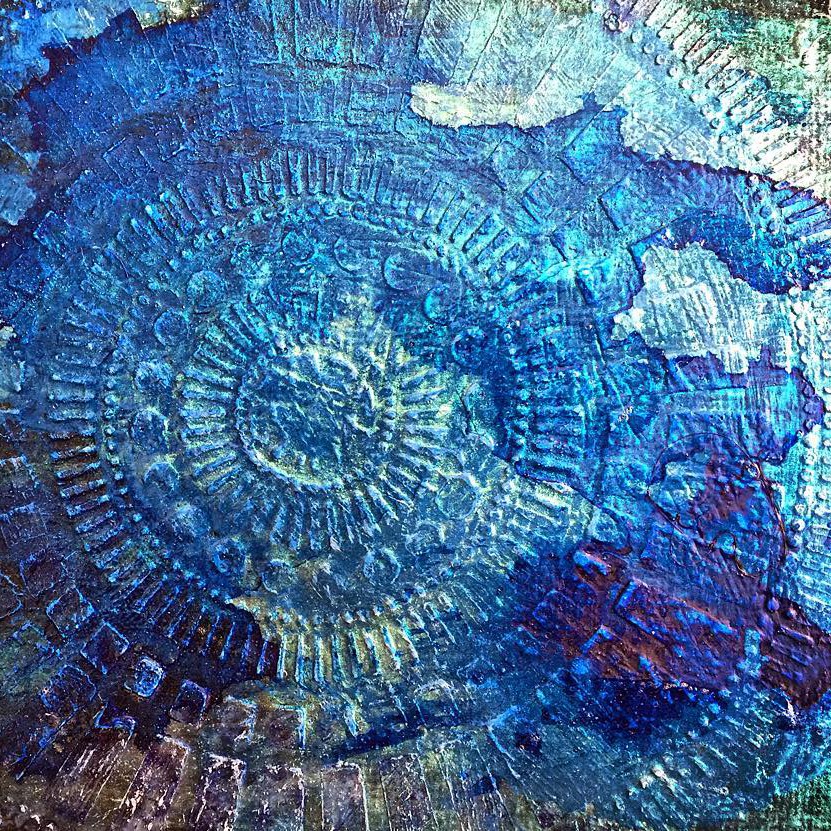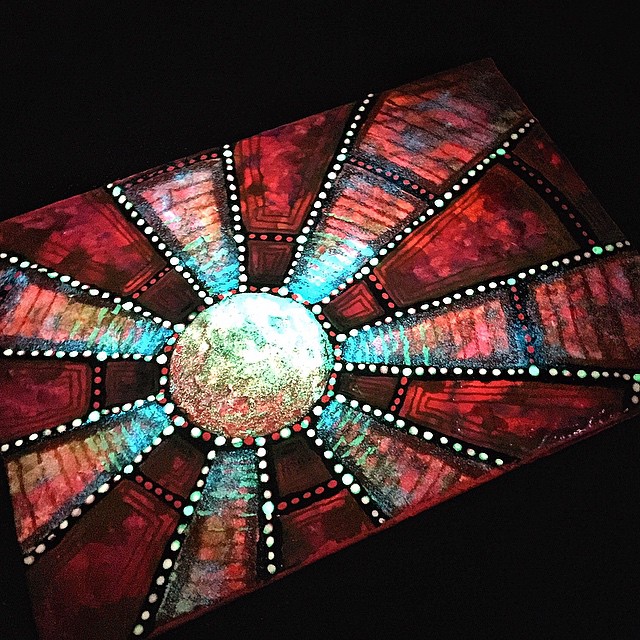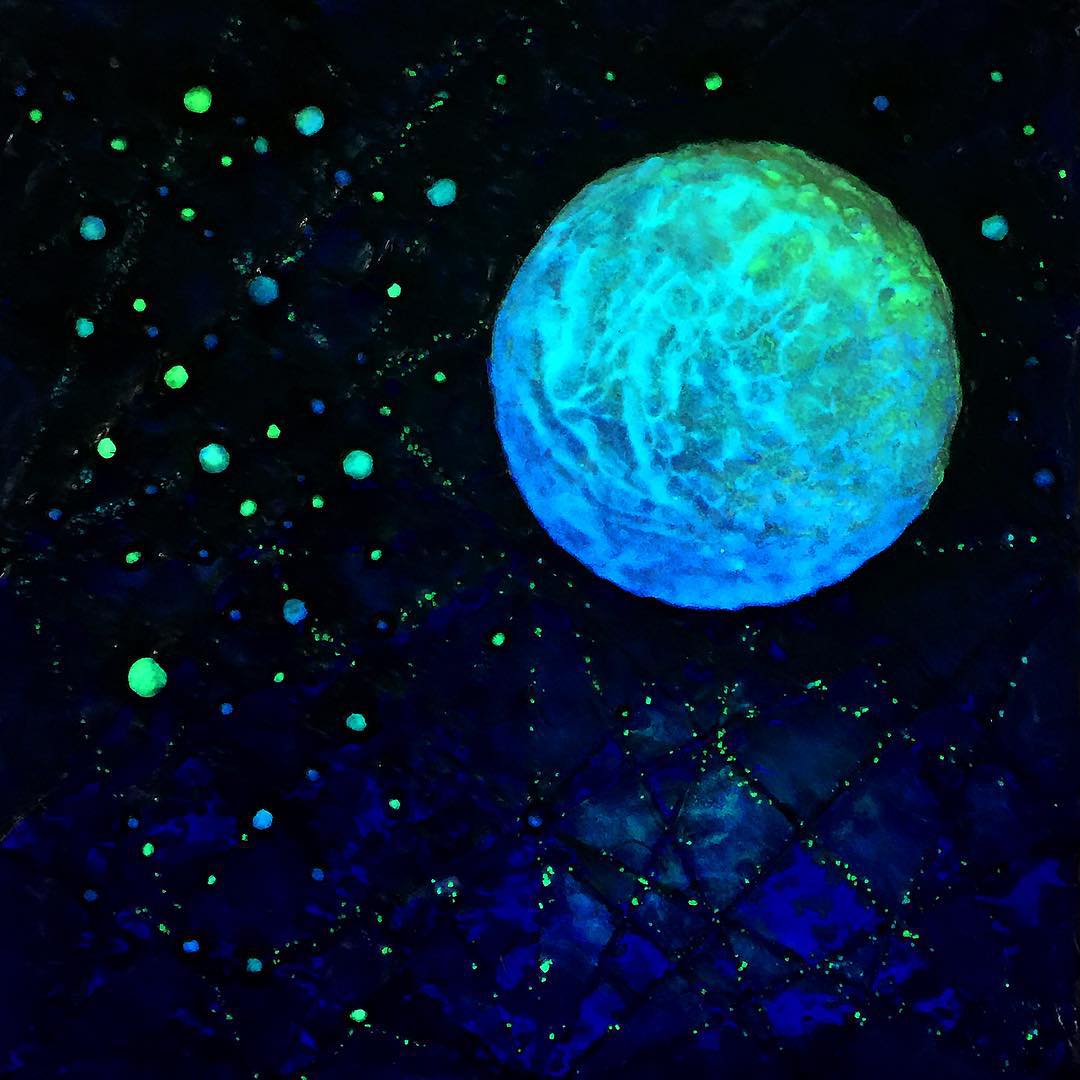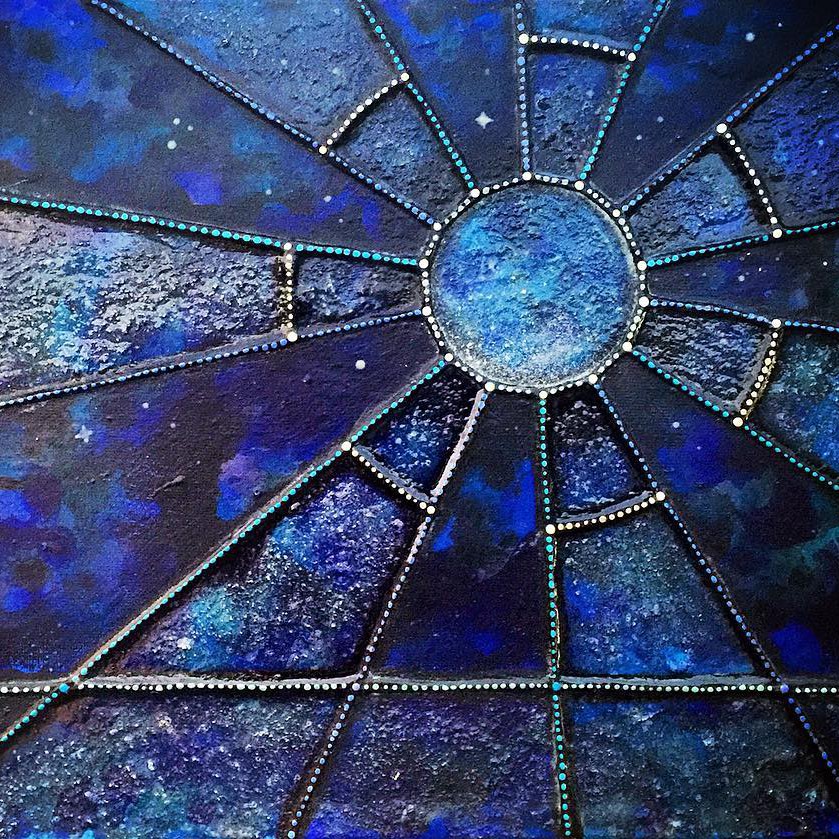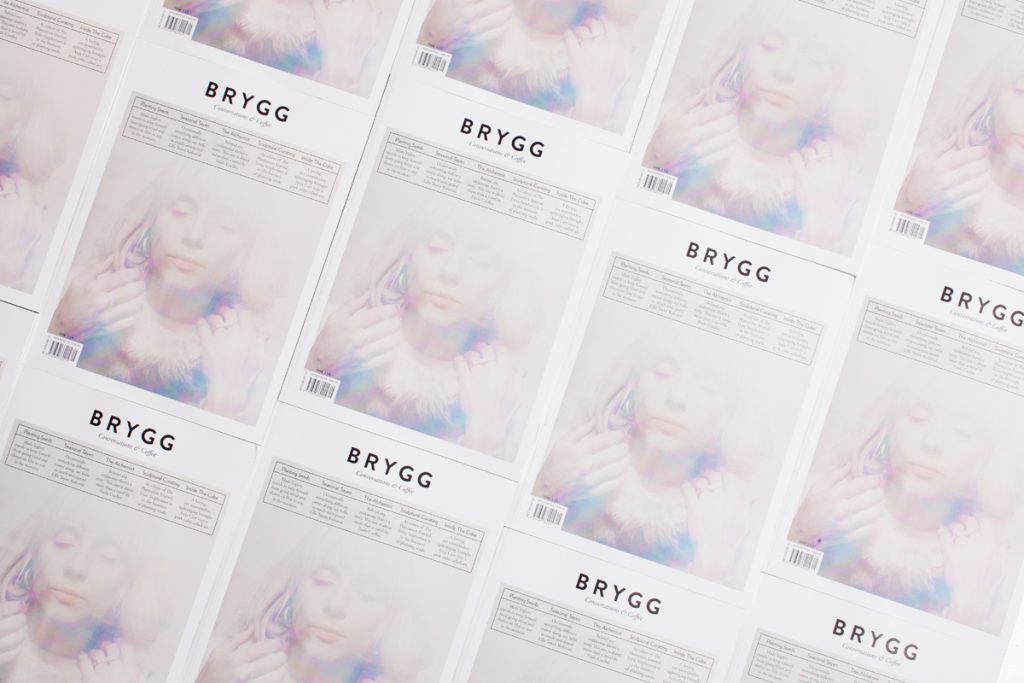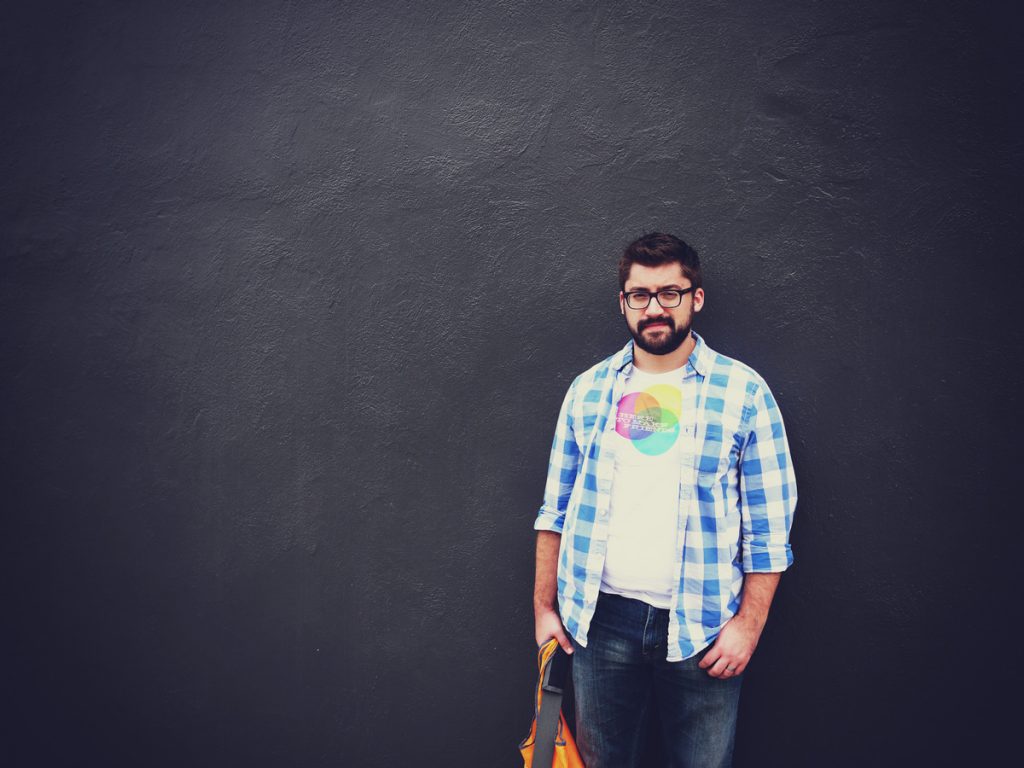How do you keep your personal integrity as an artist, in a world where you are supposed to have the most likes and hearts to win? How can you build a stable economic platform without having to change your art to please the buyers?
Shayla Maddox’s – artist based in California – main medium is light. Besides that, almost anything goes. Sand, crushed glass, sea shells, wax, spices. She was one of the first to jump on Patreon when it launched a few years back.
But how did she end up on Patreon, and how is it helping her career and integrity as an artist?
Shayla Maddox
I stumbled across Jack Conte and his band – Pomplamoose – in 2008 and thought they were doing some progressive stuff with their videos. Meanwhile, I’d been forging my own independent career, beginning to move away from galleries and started writing on the internet about this vague dream I had in which artists could be paid simply for being artists.
It seemed like that was becoming a feasible idea, but I had no clue how. I was just staying aware. Then one day in the summer of 2013, I saw Jack Conte tweet about Patreon. I watched the site, started privately building up my own page in the meantime – not telling anyone – and “practicing” using the Patreon system for my own work. This was back when there were only 6 guys running the company. They took notice of my efforts early on and I was able to gain experience with the system before Patreon became more widely known.
Since then I’ve devoted more and more time to Patreon specifically. It’s very much becoming a full time job, and that particular platform has given me exciting new opportunities to speak about my experience to the public, which I love.
New Heroes & Pioneers
How are you using it – more concrete? What are you sharing?
Shayla
It has honestly revolutionized how I operate as an artist. Art can be such a solitary, lonely activity, and I have always been happy to withdraw from the world and hide in my studio making art 24/7. But Patreon has provided me with a community of people that like hearing from me, that want to hear from me.
I’ve been able to learn and grow as a communicator, learning to speak about my art and art process to fans directly, which in turn helps ME understand my own process! I try to share authentically, but keeping in mind that presentation is very important. Fans want to know the real you, but they also want to know how you’re evolving and growing as an artist.
I write about elements in my life that are true and affect my thoughts and processes as an artist. Sometimes that means writing about frustrations and depression, which I wouldn’t normally like to do (I’d prefer to keep it all positive) but frustration and depression is something I deal with daily, and a fundamental part of why I make the art that I do. It’s important to put aside my own insecurities and trust my collectors as friends.
NHAP
It’s a different way of communicating these days, when everyone is supposed to be an expert on what they are doing. Are you reflecting a lot on what you are communicating beforehand?
Shayla
I dislike the attitude of expertise in art. I don’t feel like there can be “experts” to determine what everybody will like, and it feels a bit clique-ish and exclusive. I view life as an artist, more like a child would. I want to make the art I want to make, and I don’t want to be good at it. In fact, I try to add new techniques that I’ve never done before to each painting, specifically so that I am approaching it like a beginner. Like a child. I want the wonder and the “play” and the experimentation of it to be part of my process. I don’t want to master anything. I want to be a scientist, always experimenting and then experiencing the joy of success or failure in attempt of what I made. That’s what’s exciting to me. Even I don’t know what’s going to happen. People who claim expertise, in my opinion, have little.
The world is too ephemeral now to build yourself into an expert on anything. I think that’s why a lot of “traditional artists” struggle with things like Patreon. Expertise isn’t revered as it once was. Working experience is far more beneficial.
NHAP
Do you ever find yourself creating or writing out what you think will be liked by your fans and followers?
Shayla
Very rarely. I do see a lot of artists doing that – almost like they’re reaching all over the place, trying to find the thing that “works” or appeals to their audience. I don’t find this to be art. Just because you CAN make something, doesn’t make it art. The farther you get away from your own true voice, the less it can be classified as “art.”
I have always been a bit of a rebel, fiercely independent and not a big fan of authority, so for me personally, I have a strong willed streak to do and speak what I want to do. I don’t take a lot of direction from people.
On rare occasions, something has come up that falls outside this norm; I was approached by a celebrity to make a painting of The Shire — At first I was hesitant because it’s not my own invention, and I didn’t want to become known as any type of Tolkien painter. But I love the Shire, and so much of it fits within my own art ideals anyway, I decided to do it (especially for a high profile client.) Of course it was popular, and I soon got another request for The Shire, and this year, I’ll be doing a third. But I’m content with it because I enjoy it.
NHAP
But doing exactly what you enjoy, talking about the things you are passionate about; isn’t this luxury, which only the established artist can enjoy? How do you survive in the beginning?
Shayla
Even at the beginning, there are people out there that will resonate with what you’re doing. It’s not about changing your art so that the people around you will buy it, but more seeking out the people who will buy what you want to make. In fact, I’d say it’s most crucial at the beginning to differentiate yourself from other artists, and be protective of your style and voice. That’s the foundation upon which the next few years or decades of your career is built. If you start off being wishy washy and making whatever people ask you to make, you’ll never build an audience that appreciates your own voice, and inevitably your voice will get watered down – maybe even forgotten – while trying to please too many people.
It gets easier to maintain this once established, but I don’t personally believe you can establish anything if you’re too stretched out in too many different directions trying to please the general masses – which is impossible.
NHAP
So, in the beginning, you better get a day job?
Shayla
Well… in a manner of speaking. I worked in a photography studio and a flower shop during my first few years. There are a lot of ways to get sideways job that are related to your field. I worked in some of the galleries that hung my art. I couldn’t personally have a day job at this point, and I would find it mentally exhausting to do both. So I don’t envy anyone that part, but until it works out otherwise, people gotta do what they gotta do.
Even now, I organize my life to make it easier to be a full time artist (which does not make very much money even at my level of “establishment.”) I don’t own a car (in California!), I don’t have a TV or cable, we don’t go out often, we’ve made art our “hobby” as well as career, so we can entertain ourselves “for free” by staying home and making art. (Our money outside of food and bills is spent on travel.)
There are sacrifices, and people need to sort out their priorities You MUST get a day job that supports and encourages your art though. I don’t think it’s possible otherwise. And you have to be prepared for the long haul. Art is not a get-rich-quick scheme, and if that’s what you’re looking for, you picked the wrong career. You have to commit to the slog of working working working for YEARS. At least 10 years. It’s a slow build up over one’s life. Gone are the days of Saatchi where you can pickle a shark and have Saatchi make you a millionaire rockstar.
NHAP
So, how should someone start off using Patreon? What are the crucial steps to take and what do I have to do to get the most out of the platform?
Shayla
Mostly importantly – and this is literally what Jack Conte told me personally when I was starting out on Patreon – is to build your audience. Patreon is not a gatekeeper any more than Saatchi is. It’s about solid daily work and communicating with your fans. If you don’t have fans outside of Patreon, it will be harder, and you must first nurture those relationships. I told my audience about it in segments, kind of like outwardly expanding concentric circles. I built up my page for three months before telling anyone (other than the guys at Patreon who were watching my posts.) I filled it with my favorite images and some of my process over the years, and nurtured a habit of regular posting.
Then I told my closest family and friends, and my highest paying collectors over the years. Then after I had about $100 from them, I went public, telling everyone. This let me grow comfortable with the system before I began blasting it out everywhere. And once I went public, I have tried to be prolific as possible. Post frequently, always talk to your Patrons, interact with them, and treat them as your friends– because they are!
Patreon is sort of beautiful in that the people pledging to your ongoing art are the ones who want to hear from you. Heck, they’re paying you to hear more! These are the people to talk to. It’s hard to even look at it as marketing or advertising, but that’s a lot of what it is, just targeted at those who are guaranteed to receive it. I feel so much more comfortable talking to people that I know want to hear from me, instead of just shouting out to the emptiness of the internet.
NHAP
What are you getting back from the fans?
Shayla
My fans are great. I get notes from people all the time to let me know that I’m inspiring them. They tell me they’re floating along and feeling energetic after my broadcasts. They tell me I’ve helped them be confident in themselves. They tell me they see religion in a new light, or science in a spiritual context. People from different backgrounds and belief systems all resonate with my work and I can’t think of anything more complimentary. But it’s not just that these are “fans.”
I develop close personal relationships with my supporters, and I consider them friends. So much of life is wrapped up in art, and it’s impossible to separate it. So I try to be honest with my collectors, and let them know my struggles, and my fears, as I would a friend. And very naturally and organically, friendships develop. I’ve told secrets to collectors that I haven’t told to real life friends! It’s a very special relationship, and I value it immensely.
People want to connect with human beings! Struggle and lack of perfection is what it means to be human.
This is the best time in history to be an artist. We have so much opportunity available to us right now and the art world is changing rapidly and dramatically. Artists can help shape our future, and mold the new way things can be, abandoning the old system of exclusivity and gatekeepers.
The internet is the best gallery any of us could have dreamed of. We each have the ability to be the star of our own art careers – we just have to do it! Figure out who you want to be and then boldly live it. It’s YOUR life, and your collectors value you. It’s time for artists to stand up and value themselves. We can make our art and have close relationships with our supporters. If you look at the world like this, there is so much hope and possibility for us. I wish for more and more artists to open up to this new way of being.
Put something out and then leave it. Disappear, disassociate from the likes and comments. Where did I hear this– ignore all comments, positive and negative. In either direction, they really shouldn’t affect what you make. You should make what you want to make – there are enough people in the world that there are plenty of fans to gain on anyone’s particular thing.
You just have to find those people. And give them an opportunity to find you. (Posting a lot, being ever present online, developing relationships with fans)
No more back-up plans if you want to be an artist. Just do it!
